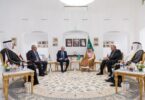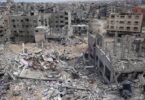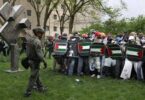David Maxwell
Excerpt
U.S. Army doctrine lists two core competencies for its Special Operations Forces (SOF): surgical strike and special warfare. The doctrinal definition of surgical strike is “the execution of capabilities in a precise manner that employ Special Operations Forces in hostile, denied, or politically sensitive environments to seize, destroy, capture, exploit, recover or damage designated targets, or influence threats.” It is perhaps the more visible and well-known of the two competencies. An example of surgical strike is the raid into Abbottabad, Pakistan, that killed Usama bin Ladin in 2011.
Special warfare is the special operations competency that has as its foundation persistent engagement with the intention to achieve long-term effects. The doctrinal definition of special warfare is
the execution of capabilities that involve a combination of lethal and nonlethal actions taken by a specially trained and educated force that has a deep understanding of cultures and foreign language, proficiency in small-unit tactics, and the ability to build and fight alongside indigenous combat formations in a permissive, uncertain, or hostile environment.
It may be less visible and well known than surgical strike, but is by far the more commonly executed competency.
U.S. involvement in the Philippines is an excellent example of a successful special warfare mission. It demonstrates that counterterrorism operations can be effective with a small U.S. presence that is based on an effective campaign plan and a fairly capable host-nation security force. It is based on the author’s personal experiences as the battalion commander of the 1st Special Forces Group’s 1st Battalion from 2000–2002 and as the commander of the Joint Special Operations Task Force–Philippines (JSOTF-P) executing Operation Enduring Freedom–Philippines from 2006–2007.
This chapter begins with an overview of security threats as well as historical background on the U.S.- Philippines security relationship. It then offers analysis of a pre-9/11 special warfare mission and an examination of the effort to establish a JSOTF in the aftermath of 9/11. The chapter then jumps to 2006, when the author returned as the JSOTF-P commander to examine special warfare from 2006–2007. Finally, it concludes with some short vignettes and lessons learned from the operations in the Republic of the Philippines.
David Maxwell, a thirty-year veteran of the United States Army and retired Special Forces colonel, is a senior fellow at the Foundation for Defense of Democracies (FDD), where he also contributes to FDD’s Center on Military and Political Power (CMPP). For more analysis from David and CMPP. Follow David on Twitter @davidmaxwell161. Follow FDD on Twitter @FDD and @FDD_CMPP. FDD is a Washington, DC-based, nonpartisan research institute focusing on national security and foreign policy.
Courtesy: (FDD)






